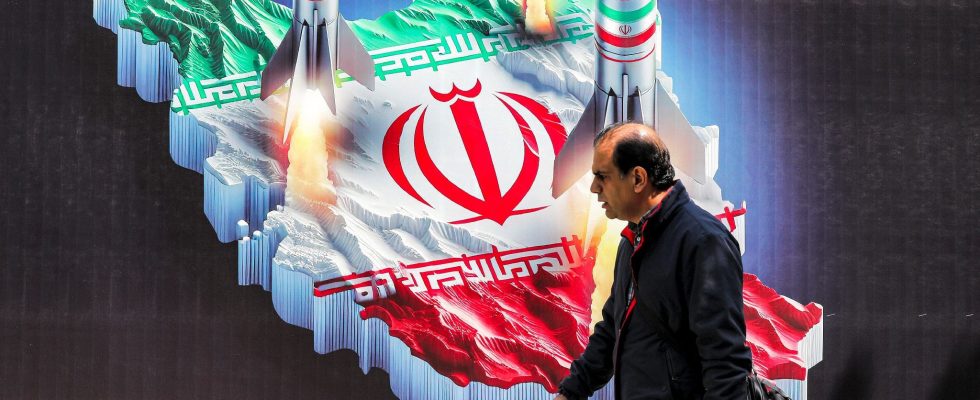For several days, Israel had been considering how it would respond to the hundreds of missiles and drones fired by Iran into its territory last weekend. This Friday, April 19 in the morning, the Middle East finally woke up to the news of a potential response from the Jewish state against the Islamic Republic.
According to several American media, Israel is responsible for a drone attack, not yet claimed, launched on the province housing nuclear installations of Isfahan, in central Iran.
Several Iranian media outlets finally confirmed three explosions near a military base, without however accusing Israel, raising fears that this new event would push the region a little deeper into conflict, while Iran had already warned that any new attack would experience an “immediate and maximum” response.
4:20 a.m.: activation of anti-aircraft shields in Iran
Around 4:20 a.m. (French time), the information was given by the Iranian agency Fars, quickly relayed by the American channels during the evening edition. “An explosion was heard in the Iranian town of Ghahjaworstan, located northwest of the city of Isfahan.” The area is sensitive: this central province of the Islamic Republic is home to several nuclear facilities, as well as eight military bases of the Iranian Air Force.
Air services over the cities of Tehran, Isfahan and Shiraz are immediately suspended. In the minutes that followed, Iran announced that it had activated its air defense system in several cities across the country.
5:30 a.m.: three explosions confirmed near military bases
An hour later, the Fars agency finally confirmed that three explosions were heard near one of the military bases where combat planes and an army air radar are stationed, in the province of Isfahan. An attack, “probably by drones” is then mentioned by the agency. But “the cause of the explosions is not yet known,” says the media at this stage.
6 a.m.: the attack comes from Israel, according to American media
Around 6 a.m. (French time), the American channels CNN and NBC, in the middle of the evening edition, announced that they had been informed by an official American source that “Israel has carried out an airstrike against Iran”. “The target is not nuclear”, indicates the source to the two media, who assures that the attack is not directed against civilians either.
In the process, the Iranian national space agency (Irna) ensures that no major damage has been reported. Iranian state media Tsanim, meanwhile, quickly confirms that Isfahan’s nuclear facilities are “completely safe.” An observation since shared by the IAEA, the UN’s international atomic energy agency. When questioned, the Israeli army then assured that it had “no comment” concerning explosions in Iran, according to CNN, thus not officially claiming responsibility for the attack.
A few hours earlier, Iranian Foreign Minister Hossein Amir Abdollahian still openly threatened Israel. “If the Israeli regime again engages in adventurism and takes action against the interests of Iran, the next response from us will be immediate and at the maximum level,” he said in a live interview on CNN.
6:15 a.m.: the United States knew but “did not approve”
Shortly after, a new revelation: Israel had warned the United States of its attack, official American sources finally indicate on CNN. “But we did not approve the response” of Israel to the previous Iranian attack, said the American official.
A potential response from Israel was indeed expected: Benjamin Netanyahu had warned that he would respond to Iran’s attack having launched hundreds of drones (mostly intercepted) on Hebrew territory last weekend. This same attack had already been launched in retaliation for a raid against the Iranian consulate in Damascus, Syria, blamed on Israel.
According to a Pentagon press release, American Defense Secretary Lloyd Austin also spoke Thursday, April 18, with Israeli Defense Minister Yoav Gallant about “regional threats and Iran’s destabilizing actions in the Middle East.” “.
7 a.m.: “No large-scale strikes or explosions”
Around 7 a.m., the Islamic Republic finally announced that it had not suffered a “large-scale strike or explosion”.
“Three drones were successfully shot down by the country’s air defense, no missile attacks have been reported so far,” said the spokesperson for the National Cyberspace Center of Iran, Hossein Dalirian, on the social platform. x.
9 a.m.: “No attacks from abroad”
But very quickly, Iran tried to deny this attack. State news agency Tsanim says that “contrary to rumors and claims made by Israeli media”, there “are no reports of an attack from abroad on the central city of Isfahan or any other part of the country”, while no Iranian leader has publicly commented on these explosions. According to Tsanim, “air defense units” were activated in some locations because of the “high sensitivity of air defense systems due to the current situation and the possibility of detecting some small drones.” The Irna space agency, for its part, clarified that “no information indicating the firing of anti-missile defense systems” had been received.
After three hours of chaos, flights have since resumed from the Iranian capital’s two main airports, Mehrabad and Imam-Khomeini. On state television channels, images of calm in the country’s major cities are broadcast, including in Isfahan, showing passers-by walking freely in the city and reporting normal traffic in the city.
Despite the apparent return to calm, experts are concerned about an escalation of the conflict, while the endless exchange of reprisals seems to be getting out of hand between the two countries. Several countries, including France and Italy, called this Friday morning for de-escalation and restraint.
